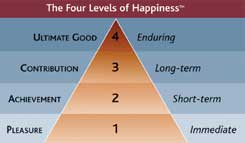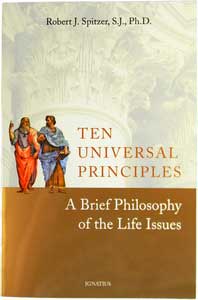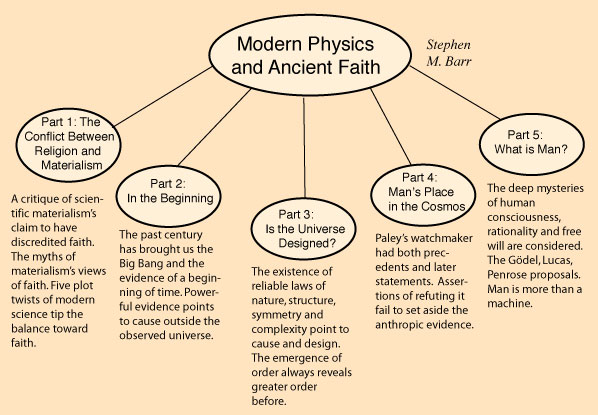What is old is new again. That’s why the Fathers are so important, they’ve done battle with the heresies that continue to plaque our Church even today. Also in his writings you can see the “Theology of the Body”…1800 years or so before we hear from Pope John Paul II. Faith and Reason can live in harmony…then knew it then and we can be confident about that now.
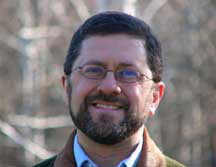 Take a listen to Mike Aquilna, who does a great job giving us the life of this early, early father of the Church, Clement of Alexandria.
Take a listen to Mike Aquilna, who does a great job giving us the life of this early, early father of the Church, Clement of Alexandria.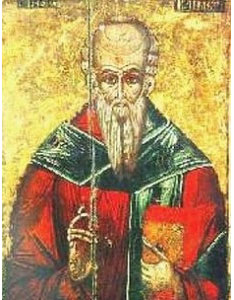
[powerpress]
Here in a very small nutshell is an overview of St. Clement of Alexandria –
from wikipedia –
Titus Flavius Clemens (c.150 – c. 215), known as Clement of Alexandria (to distinguish him from Clement of Rome), was a Christian theologian and the head of the noted Catechetical School of Alexandria. Clement is best remembered as the teacher of Origen. He united Greek philosophical traditions with Christian doctrine and valued gnosis that with communion for all people could be held by common Christians specially chosen by God.Though he constantly opposes the concept of gnosis as defined by the Gnostics, he used the term “gnostic” for Christians who had attained the deeper teaching of the Logos.He developed a Christian Platonism. He presented the goal of Christian life as deification, identified both as Platonism’s assimilation into God and the biblical imitation of God.
Like Origen, he arose from Alexandria’s Catechetical School and was well versed in pagan literature.Origen succeeded Clement as head of the school.Alexandria had a major Christian community in early Christianity, noted for its scholarship and its high-quality copies of Scripture.
Clement is counted as one of the early Church Fathers. He advocated a vegetarian diet and claimed that the apostles Peter, Matthew, and James the Just were vegetarians. – wikipedia
Great trilogy of St. Clement of Alexandria
The trilogy into which Clement’s principal remains are connected by their purpose and mode of treatment is composed of:
- the Protrepticus (“Exhortation to the Greeks”)
- the Paedagogus (“Instructor”)
- the Stromata (“Miscellanies”)
The first book deals with the religious basis of Christian morality, the second and third with the individual cases of conduct.
Tags: alexanderia, Church, clement of alexandria, early church fathers, faith and reason, father, father of the church, fathers mike, fathers of the church, gnostics, heresy, mike aquilina, Mike Aquilna
This entry was posted on Thursday, December 4th, 2014 at 8:26 am
You can follow any responses to this entry through the RSS 2.0 feed.
Faith and Reason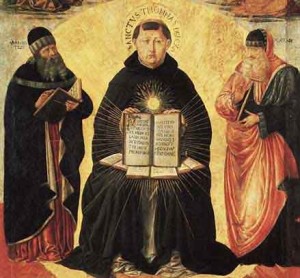
[powerpress]
“Come let us reason together, says the Lord†– Isaiah 1:18.
Many in our day strictly divide faith and reason, seeing science as based on logic and objective truth, but religion as solely emotional and subjective.
Not so, says the Catholic Church. Faith and reason complement and assist one another in the pursuit of truth. All truth is God’s truth and ultimately leads to Him who is Truth itself, Jesus Christ, so there is nothing to fear from scientific inquiry.
In fact, for centuries the Catholic Church was the patron of the arts and sciences. St. Thomas Aquinas used Greek philosophy to show the logical foundation of the Catholic Faith, many of the great scientific discoveries have been made by Catholic priests or scientists, convinced that the universe operated by fixed laws established by the one true God, not the mere whims of the gods as the pagans had previously believed.
Of course, faith is a gift and is not based on reason alone. Nevertheless, as Sir Thomas More says in the classic film A Man For All Seasons, “God made the angels to show His splendor, the animals for their innocence, and the plants for simplicity, but God made man to serve him wittily in the tangle of His mind.â€
Tags: catholic, catholic podcast, catholic prayer, cathollc spirituality, faith and reason, Faith and Reason Faith, jesus christ, thomas aquinas
This entry was posted on Monday, January 16th, 2012 at 8:16 am
You can follow any responses to this entry through the RSS 2.0 feed.
It’s always a joy to talk with Fr. Robert Spitzer!  With his latest book , 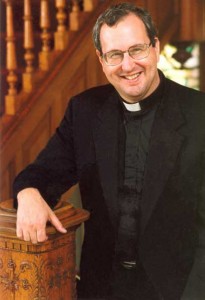 “Ten Universal Principles: A Brief Philosophy of the Life Issues” he has brought solid philosophy that is easy to read and understand. Not just for those who are interested in a prolife discussion, the “Ten Universal Principles” is perfect for anyone who wishes to grow in the use of faith and reason.  Fr. Spitzer addresses many questions including:  How do we make sense of life? How should we treat others? How should we reasonably be expected to be treated by others? When human life is at stake, are there reasonable principles we can rely on to guide our actions? How should our laws be framed to protect human life? What kind of society should be built?
“Ten Universal Principles: A Brief Philosophy of the Life Issues” he has brought solid philosophy that is easy to read and understand. Not just for those who are interested in a prolife discussion, the “Ten Universal Principles” is perfect for anyone who wishes to grow in the use of faith and reason.  Fr. Spitzer addresses many questions including:  How do we make sense of life? How should we treat others? How should we reasonably be expected to be treated by others? When human life is at stake, are there reasonable principles we can rely on to guide our actions? How should our laws be framed to protect human life? What kind of society should be built?
The Four Levels of Happiness described in the last section is worth it’s weight in gold.
[powerpress]
The Four Levels of Happiness®
Happiness is the only goal that people pursue for its own sake, which makes it an ideal lens for explaining why people and organizations behave as they do. The Four Levels of Happiness model shows leaders how to elevate the powerful drive for happiness and direct it toward shared goals, strong ethics, and great performance. Click here for a full description of the Four Levels.
You find the book here
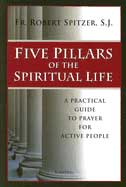 You can listen to more Fr. Spitzer as he discusses the “5 Pillars of the Spiritual Life” on the Inside the Pages interview #56
You can listen to more Fr. Spitzer as he discusses the “5 Pillars of the Spiritual Life” on the Inside the Pages interview #56
Tags: catholic, catholic podcast, catholic prayer, cathollc spirituality, faith, faith and reason, ignatius press, jesuits, joy, philosophy, prolife issues, Ten Universal Principles
This entry was posted on Tuesday, November 15th, 2011 at 7:27 am
You can follow any responses to this entry through the RSS 2.0 feed.
Episode 11 – Blessed John Henry Newman – The University Sermons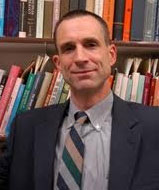
[powerpress]
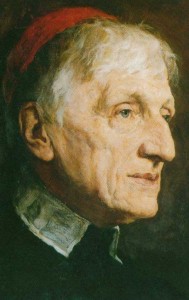 In this episode Dr. Reno examines Blessed John Henry Newman. Â We discuss the substance and influence of the “University Sermons” and in particular sermon #4 “The Usurpations of Reason”
In this episode Dr. Reno examines Blessed John Henry Newman. Â We discuss the substance and influence of the “University Sermons” and in particular sermon #4 “The Usurpations of Reason”
Click here to view Sermon #4
“Christian Apologetics with Dr. R. R. Reno” explores numerous facets of faith and reason in the life of the Church and the world. Grounded on the work of giants, such as St. Thomas Aquinas, St. Bonaventure, Blessed John Newman, Â Blessed John Paul II, G. K. Chesterton, Blaise Pascal and Stephen Barr, Dr. Reno helps us to open our minds to make the journey to our hearts.
R. R. Reno is the editor at First Things: A Journal of Religion, Culture, and Public Life, and Professor of Theology, currently on leave from Creighton University. His theological work has been published in many academic journals. Essays and opinion pieces on religion, public life, contemporary culture, and current events have appeared in Commentary, and the Washington Post. In Fighting the Noonday Devil Reno suggests that putting ourselves at the disposal of what is real is what trains us for true piety. His other recent books include Genesis: Brazos Theological Commentary on the Bible and Sanctified Vision: An Introduction to Early Christian Interpretation of the Bible.
Tags: Blessed John Henry Newman, Blessed John Newman, catholic, catholic podcast, catholic prayer, cathollc spirituality, christian apologetics, Dr. R. R. Reno, faith and reason
This entry was posted on Friday, August 26th, 2011 at 7:13 am
You can follow any responses to this entry through the RSS 2.0 feed.
Episode 9 – Dr. Stephen Barr’s “Modern Physics & Ancient Faith” part 2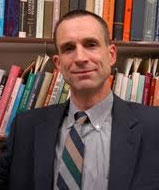
[powerpress]
In this episode Dr. Reno examines Faith and Reason through the work of Dr. Stephen Barr’s “Modern Physics and Ancient Faith” and enters into the concept of “Scientific Materialism”. Â part 2
“Christian Apologetics with Dr. R. R. Reno” explores numerous facets of faith and reason in the life of the Church and the world. Grounded on the work of giants, such as St. Thomas Aquinas, St. Bonaventure, Blessed John Newman, soon-to-be Blessed John Paul II, G. K. Chesterton, Blaise Pascal and Stephen Barr, Dr. Reno helps us to open our minds to make the journey to our hearts.
R. R. Reno is the editor at First Things: A Journal of Religion, Culture, and Public Life, and Professor of Theology, currently on leave from Creighton University. His theological work has been published in many academic journals. Essays and opinion pieces on religion, public life, contemporary culture, and current events have appeared in Commentary, and the Washington Post. In Fighting the Noonday Devil Reno suggests that putting ourselves at the disposal of what is real is what trains us for true piety. His other recent books include Genesis: Brazos Theological Commentary on the Bible and Sanctified Vision: An Introduction to Early Christian Interpretation of the Bible.
Tags: Ancient Faith, catholic, catholic podcast, catholic prayer, cathollc spirituality, creighton university, faith and reason, first things, Modern Physics and Ancient Faith, stephen barr
This entry was posted on Tuesday, July 26th, 2011 at 7:43 pm
You can follow any responses to this entry through the RSS 2.0 feed.
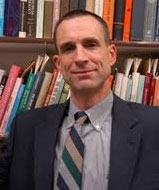 Episode 8 – Dr. Stephen Barr’s “Modern Physics & Ancient Faith” part 1
Episode 8 – Dr. Stephen Barr’s “Modern Physics & Ancient Faith” part 1
[powerpress]
In this episode Dr. Reno examines Faith and Reason through the work of Dr. Stephen Barr’s “Modern Physics and Ancient Faith” and enters into the concept of “Scientific Materialism”.
“Christian Apologetics with Dr. R. R. Reno” explores numerous facets of faith and reason in the life of the Church and the world. Grounded on the work of giants, such as St. Thomas Aquinas, St. Bonaventure, Blessed John Newman, soon-to-be Blessed John Paul II, G. K. Chesterton, Blaise Pascal and Stephen Barr, Dr. Reno helps us to open our minds to make the journey to our hearts.
R. R. Reno is the editor at First Things: A Journal of Religion, Culture, and Public Life, and Professor of Theology, currently on leave from Creighton University. His theological work has been published in many academic journals. Essays and opinion pieces on religion, public life, contemporary culture, and current events have appeared in Commentary, and the Washington Post. In Fighting the Noonday Devil Reno suggests that putting ourselves at the disposal of what is real is what trains us for true piety. His other recent books include Genesis: Brazos Theological Commentary on the Bible and Sanctified Vision: An Introduction to Early Christian Interpretation of the Bible.
Tags: Ancient Faith, catholic, catholic podcast, catholic prayer, cathollc spirituality, creighton university, faith and reason, first things, Modern Physics and Ancient Faith, stephen barr
This entry was posted on Friday, July 15th, 2011 at 8:28 pm
You can follow any responses to this entry through the RSS 2.0 feed.
 Episode 7- Blessed John Paul II – Fides et Ratio : Faith and Reason
Episode 7- Blessed John Paul II – Fides et Ratio : Faith and Reason
[powerpress]
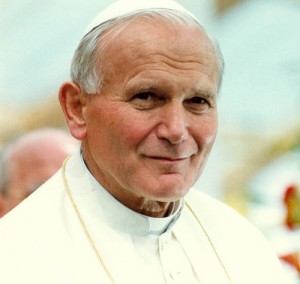 In this episode Dr. Reno examines Faith and Reason through Blessed John Paul II’s “Fides et Ratio”.
In this episode Dr. Reno examines Faith and Reason through Blessed John Paul II’s “Fides et Ratio”.
|
For an online version of “Fides et Ratio’ click here
“Christian Apologetics with Dr. R. R. Reno” explores numerous facets of faith and reason in the life of the Church and the world. Grounded on the work of giants, such as St. Thomas Aquinas, St. Bonaventure, Blessed John Newman, soon-to-be Blessed John Paul II, G. K. Chesterton, Blaise Pascal and Stephen Barr, Dr. Reno helps us to open our minds to make the journey to our hearts.
R. R. Reno is the editor at First Things: A Journal of Religion, Culture, and Public Life, and Professor of Theology, currently on leave from Creighton University. His theological work has been published in many academic journals. Essays and opinion pieces on religion, public life, contemporary culture, and current events have appeared in Commentary, and the Washington Post. In Fighting the Noonday Devil Reno suggests that putting ourselves at the disposal of what is real is what trains us for true piety. His other recent books include Genesis: Brazos Theological Commentary on the Bible and Sanctified Vision: An Introduction to Early Christian Interpretation of the Bible.
Tags: blessed john paul ii, catholic, catholic podcast, catholic prayer, cathollc spirituality, christian apologetics, creighton university, faith and reason, fides et ratio, first things
This entry was posted on Friday, July 1st, 2011 at 12:09 am
You can follow any responses to this entry through the RSS 2.0 feed.
Episode 5 – Whether sacred doctrine is a matter of argument? [powerpress]
Question 1 Article 8Â Whether sacred doctrine is a matter of argument?
Objection 1: It seems this doctrine is not a matter of argument. For Ambrose says (De Fide 1): “Put arguments aside where faith is sought.” But in this doctrine, faith especially is sought: “But these things are written that you may believe” (Jn. 20:31). Therefore sacred doctrine is not a matter of argument.
Objection 2: Further, if it is a matter of argument, the argument is either from authority or from reason. If it is from authority, it seems unbefitting its dignity, for the proof from authority is the weakest form of proof. But if it is from reason, this is unbefitting its end, because, according to Gregory (Hom. 26), “faith has no merit in those things of which human reason brings its own experience.” Therefore sacred doctrine is not a matter of argument.
On the contrary, The Scripture says that a bishop should “embrace that faithful word which is according to doctrine, that he may be able to exhort in sound doctrine and to convince the gainsayers” (Titus 1:9). 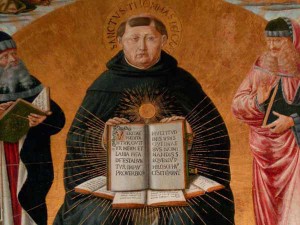
I answer that, As other sciences do not argue in proof of their principles, but argue from their principles to demonstrate other truths in these sciences: so this doctrine does not argue in proof of its principles, which are the articles of faith, but from them it goes on to prove something else; as the Apostle from the resurrection of Christ argues in proof of the general resurrection (1 Cor. 15). However, it is to be borne in mind, in regard to the philosophical sciences, that the inferior sciences neither prove their principles nor dispute with those who deny them, but leave this to a higher science; whereas the highest of them, viz. metaphysics, can dispute with one who denies its principles, if only the opponent will make some concession; but if he concede nothing, it can have no dispute with him, though it can answer his objections. Hence Sacred Scripture, since it has no science above itself, can dispute with one who denies its principles only if the opponent admits some at least of the truths obtained through divine revelation; thus we can argue with heretics from texts in Holy Writ, and against those who deny one article of faith, we can argue from another. If our opponent believes nothing of divine revelation, there is no longer any means of proving the articles of faith by reasoning, but only of answering his objections—if he has any—against faith. Since faith rests upon infallible truth, and since the contrary of a truth can never be demonstrated, it is clear that the arguments brought against faith cannot be demonstrations, but are difficulties that can be answered. (more…)
Tags: catholic, catholic podcast, catholic prayer, cathollc spirituality, christian apologetics, creighton university, faith and reason, first things, summa theologica
This entry was posted on Wednesday, June 8th, 2011 at 7:24 am
You can follow any responses to this entry through the RSS 2.0 feed.

